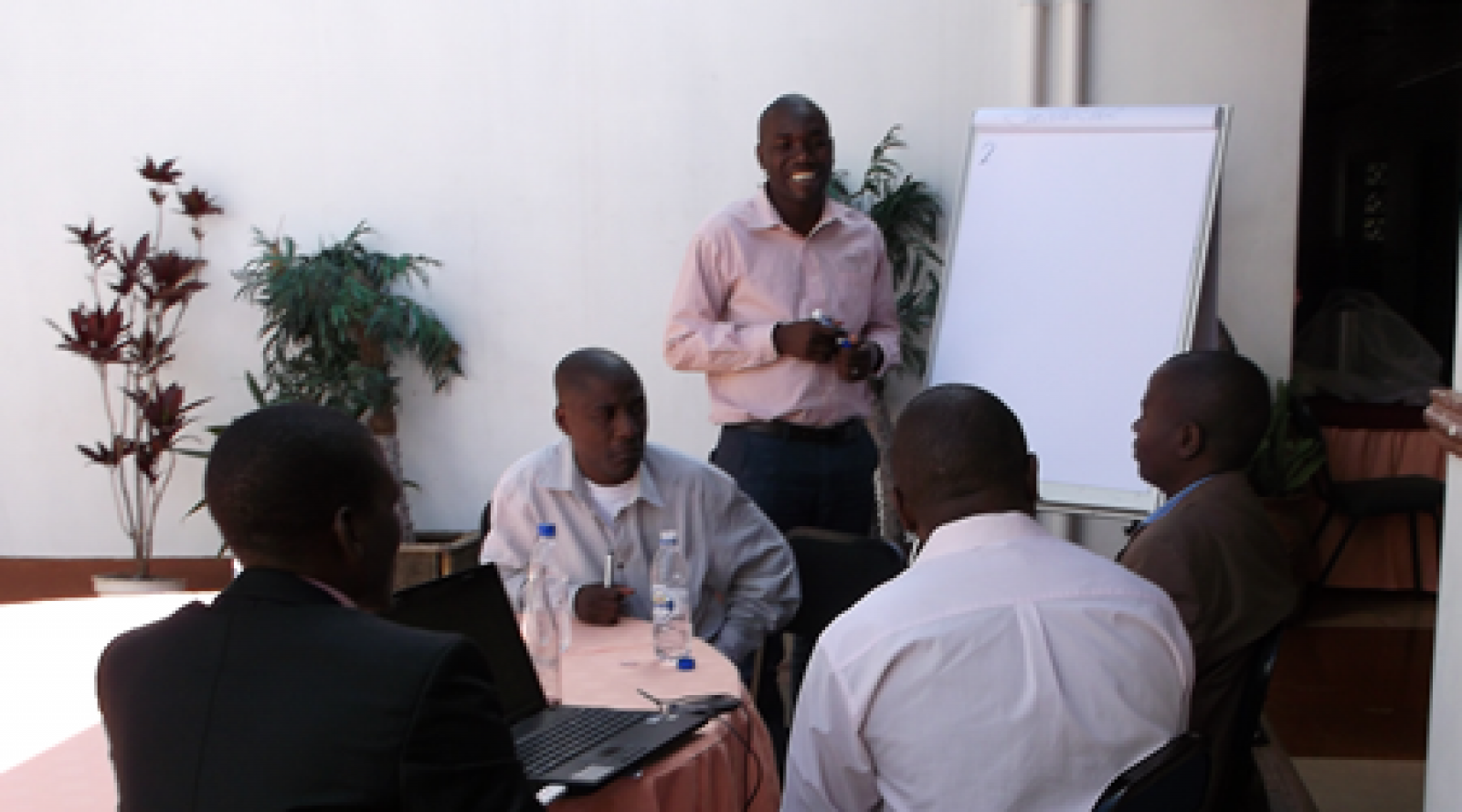
SHARE
Despite many years of elections, Malawi continues to grapple with a history of voting based on regional loyalties, lack of political tolerance, abuse of state resources and a media monopoly—problems that often result in an unfair playing field for candidates. There is also a basic lack of knowledge among voters about laws governing election conduct. All of these factors will come into play when the country holds its first tripartite election next May for president, parliament and local government.
To identify and address these and other potential challenges, NDI and the National Initiative for Civic Education (NICE) brought together members of the Malawi Electoral Commission (MEC) and representatives of community organizations — including women and people with disabilities—to develop a voter education plan. It included suggestions that could be used by the MEC and other organizations to guide the development of election materials, such as posters, jingles and radio programs, to combat problems that have plagued previous polls.
The group discussed past electoral challenges — such as government intimidation of voters, the use of state resources for partisan interests, and the use of inflammatory language and mudslinging - when it met July 15-17 in Blantyre.
NDI Malawi Resident Director Taona Mwanyisa, who addressed the group, said that effective civic and voter education could help reverse past trends of low voter turnout, ballots that were null and void because voters didn’t understand how to fill them out, and voting based on unrealistic campaign promises.
One of the group’s suggested messages tells citizens that “campaigning is not about mudslinging or fighting, but about what candidates will do for the people.”
The group analyzed previous voter education materials, such as posters, banners, stickers and jingles, and suggested improvements that would encourage voters to choose a candidate based on how he or she addressed issues rather than personality or where the candidate was from.
One message said, “It’s better to focus on your accomplishments than the weaknesses of others! To all politicians, tell us what you have done.”
Participants also identified potential challenges — such as people’s lack of understanding of tripartite elections and polling day processes — and developed messages to address them.
“It is… in the interest of the commission to see that civic and voter education messages…are standardized and accessible to diverse demographic groups,” said MEC Commissioner Gloria Chingota, who was the keynote speaker during the meeting. She stressed the need to educate all citizens no matter their gender, age, literacy levels, social status, geographical location or physical disabilities. “Standardized messages reduce incidences of misunderstanding,” she said.
The workshop was organized with funding from the British Department for International Aid (DFID) through NDI and the European Union through NICE.
The workshop was one in a series of activities that NDI is carrying out under its project, Malawi: Enhancing the Prospects for Peaceful, Accountable, and Credible Elections.
Related:
- NDI Partners with Commonwealth Parliamentary Association to Strengthen Parliaments»
- Malawi Election Monitoring Organization Issues 2nd Interim Report on May 19 Vote»
Published Sept. 26, 2013


